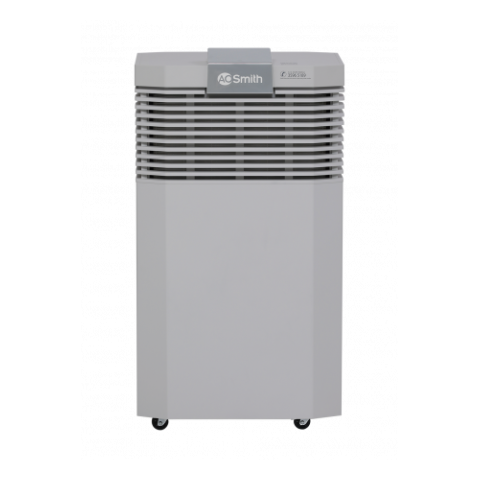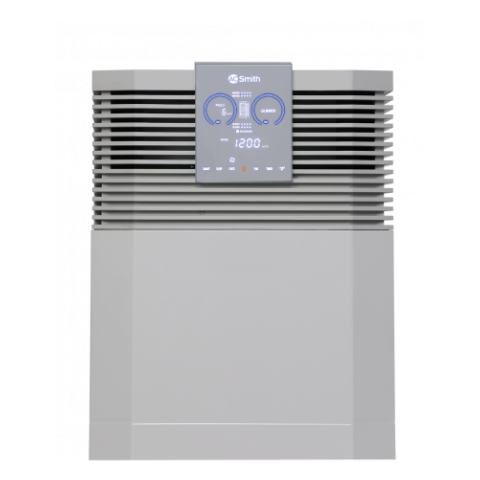Ever since the coronavirus outbreak first hit headlines in late December of 2019 a global effort to shed light on the deadly new pathogen has been in full swing. Research being conducted daily are uncovering new details and paradigm shifts on the true nature of Covid-19 and the public turns to this information to protect themselves against the virus.
Interest in HEPA filtration devices has been on the rise among people wanting to make sure the indoor air they breathe is free from the threat of pathogens. HEPA filtration has long proven its efficiency by being a staple in hospitals where it is used to protect patients and staff from airborne health hazards.
The use of UV sterilization devices is also another technology commonly seen in a medical setting currently being incorporated for domestic use to protect against the virus, these include UV wands, UV robots, UV air purifiers, and UV ceiling lights. Using UV germicidal lights however comes with its own risks and it's important to be informed with how they really work. Air purifiers with UV lamps inside their filters are being marketed as being a better alternative to standard HEPA air purifiers but are they really more effective?
What is UV light and how does it affect us?
Ultraviolet Light is an invisible form of electromagnetic radiation and has the ability to kill or incapacitate cells by destroying their nucleic acids and disrupting their DNA. Prolonged exposure to UV light will render cells unable to perform their vital functions.
Hospitals have been using UV lights to keep diseases under control by placing UV lights in places like operating rooms to sterilize surfaces, instruments, and equipment. Hospitals also use UV lights in HVAC ducts to inhibit microbial growth and prevent these biological hazards from contaminating indoor air.
UV light can be classified into three types:
UV-A: Long wavelength. It can penetrate the middle layer of skin. 95% of the sun's radiation that reaches earth is UV-A.
UV-B: Short wavelength. Reaches the outer layer of skin, it also causes sunburns and is linked to skin cancer.
UV-C: Most harmful to living organisms and cells. 100% of UVC light from the sun is blocked by the earth's atmosphere which means humans can only be exposed to UV-C through an artificial source such as a lamp or a laser.
UV-C is the same type of light used by UV germicidal lamps to irradiate and kill germs.

![]() It is important to note that improper use of UV-C lamps may expose its user to a myriad of health risks. The International Ultraviolet Association says "most UV lamps used for UV disinfection contain mercury" a harmful substance to humans. UV-C bulbs also tend to generate ozone (O3) when it interacts with the air and is proven to be a dangerous health hazard. Most UV-C bulb manufactures apply a special coating to counter this harmful effect but cheaply made bulbs from unregulated manufacturers could be supplying a dangerous non-FDA approved product.
It is important to note that improper use of UV-C lamps may expose its user to a myriad of health risks. The International Ultraviolet Association says "most UV lamps used for UV disinfection contain mercury" a harmful substance to humans. UV-C bulbs also tend to generate ozone (O3) when it interacts with the air and is proven to be a dangerous health hazard. Most UV-C bulb manufactures apply a special coating to counter this harmful effect but cheaply made bulbs from unregulated manufacturers could be supplying a dangerous non-FDA approved product.
Can UV light kill Covid-19?
Ultraviolet Germicidal Irradiation or UVGI lamps have been used to kill pathogens for decades. It's certainly capable of killing Covid-19 with the right UV dosage and through a complex process best administered by a trained professional.
Most bacteria and viruses are killed when exposed to a UV intensity of 2,000 to 8,000 μW·s/cm2. UV-C light at a dose of 600 μJ/cm2 is shown to be effective against Covid-19. It is recommended for anyone intending to get a UV sterilization device marketed for domestic use to first inspect and verify if the appliance's specifications meet the requirements to kill the virus since some lower-end manufacturers create UVGI lamps that are unable to provide the required dosage to be effective.
UV-C light was also shown to be ineffective when trying to kill viruses captured in filters (in this case an N95 face mask's filter) in a study conducted by the American Journal of Infection Control. This was mainly due to the UV-C light's inability to effectively penetrate all the layers of the mask's filter to sterilize surfaces the virus have clung to.
Do UV lights increase the effectiveness of HEPA air purifiers?
Given that HEPA filters are significantly denser than the N95 masks used in the aforementioned study we can deduce that UVGI lamps inside HEPA air purifiers would be highly ineffective at killing Covid-19 trapped in a HEPA filters' fibers.
UVGI lamps are also capable of accelerating the degradation of components found inside a HEPA air purifier. The materials deteriorate when exposed to a UVGI lamp include cotton fibers, plastics, gaskets, and metal parts which when damaged affects the overall effectiveness of a HEPA filter to clean the air.
A misleading tactic often used by some HEPA filtration device manufacturers is to cite preexisting UV studies to claim the benefits of UVGI technology while intentionally omitting the fact that the tests were done in an HVAC system and other clinical settings as opposed to their own devices in a domestic environment.
Should you get an air purifier that uses UV lights?
HEPA filters are already proven to be effective at cleaning indoor air as is and the added benefits of installing a UVGI lamp inside it are negligible at best. Improper handling and misinformed use of UVGI lamps may even pose serious health hazards to its user, it is also important to mention that no regulatory body has ever approved the use of UVGI lamps inside HEPA filtration devices.




